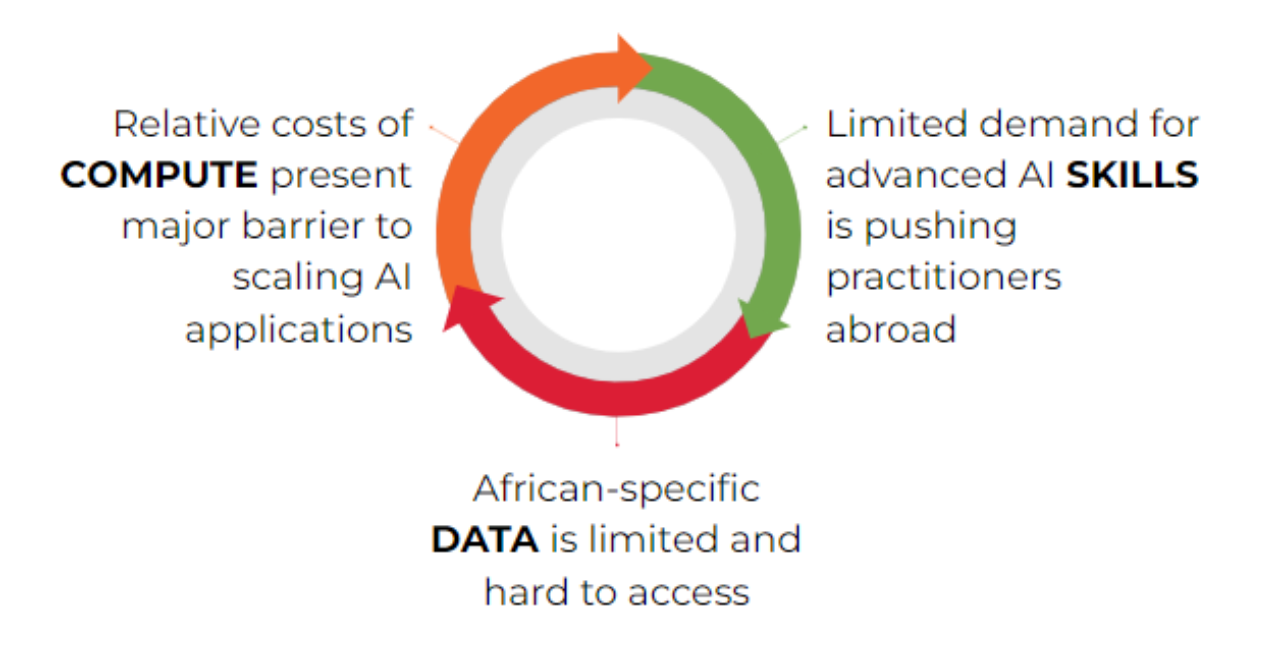
Investment key to harnessing AI revolution in Africa
Artificial Intelligence is redefining industries globally, offering solutions to climate change, enhancing public service delivery, and revolutionising the financial sector. With AI’s immense potential, it’s unsurprising that the current global market is valued at an impressive $16.5 trillion.
But where does Africa stand in the AI revolution? Currently, the continent only claims a modest 2.5% of the global AI market. By 2030, however, AI has the potential to inject $2.9 trillion into the African economy, equating to a 3% annual increase in GDP. This economic boost could lift 11 million Africans out of poverty and create jobs for half a million people across the continent each year. Capitalising on AI is a vital opportunity demanding strategic investments to strengthen Africa’s AI ecosystem.
Genesis Analytics was contracted by the International Development Research Centre (IDRC) to identify and quantify the investment gaps for strengthening Africa’s AI ecosystem. Our approach entailed a comprehensive analysis of the ecosystem’s present state, its future demand trajectory, and the principal areas that warrant increased investment in the immediate to medium term.
Our analysis was split across the fundamental components of AI ecosystems: computational hardware (or “compute” to power and run AI solutions), data which provides the information backbone to algorithms, and the necessary skills to innovate, manage and deploy AI solutions. These elements are connected in a virtuous cycle in which skills and data generation drive demand for compute, while accessible and affordable compute, in turn, catalyses demand for skills and data.
Our research found major gaps across these critical inputs which are weakening the broader African AI ecosystem and hindering its growth.

DATA: The relative supply of African-specific data is a fraction of that of other regions. The data that does exist is not easily accessed and often not of required quality.
African languages make up 0.02% of internet content, a key source of language data for LLMs.
COMPUTE: The absolute costs of compute are relatively similar across regions but when taken as a function of income levels, the costs of compute are high for African practitioners. This is a major barrier to scaled use and application of AI.
The cost of compute is 31x more expensive in Kenya than Germany (% GDP per capita).
SKILLS: A major challenge is suppressed levels of demand for AI practitioners. Investing in higher education and advanced AI skills without investing in stimulating local demand for these skills will perpetuate the brain drain.
There are 10x more African than European AI postgrads to every data analyst position.
In order to plug these gaps, we found that large-scale investments are required across the three pillars of the AI ecosystem. The estimated levels of investment ($ billions) required for each of the pillars across AI scenarios are as follows:

To harness AI's transformative power, African nations must urgently bridge ecosystem gaps through comprehensive investment strategies. We call for significant investment in data collection, high-performance computing resources and demand-led skilling programmes. The substantial value at stake necessitates immediate, collaborative action to mobilise the necessary resources and drive progress. This is a crucial moment for stakeholders to come together to support African nations in realising the economic and social potential of AI.
To find out more or discuss collaboration opportunities, reach out to Ceri Scott